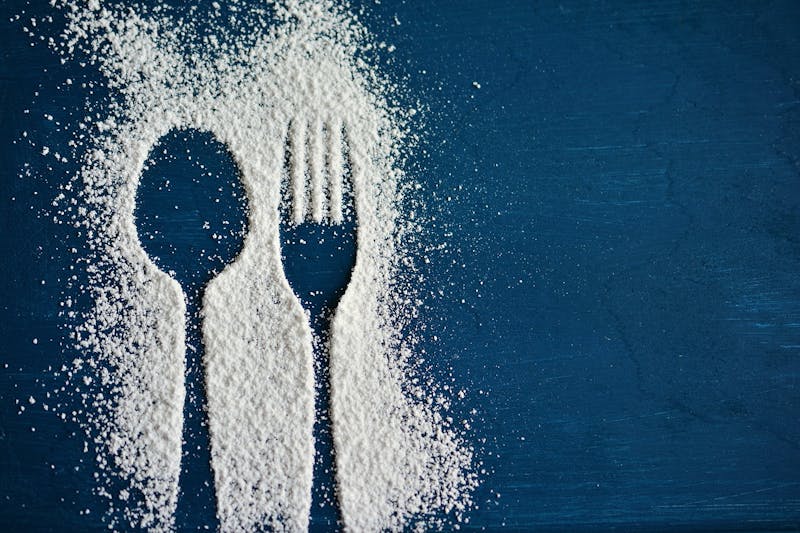
You’ve probably heard this before, but just in case you haven’t: added sugar is not good for you. Fat gets the flak for many health problems, like obesity and heart troubles, but it’s really sugar that’s largely to blame. And with candy covering the shelves of every store you walk into this month, we thought it might be a good time to talk about it.
Now we know what you’re thinking “everything in moderation, right?”, but in this case, it might not be so simple. Of course, it would unrealistic to tell you that you should never eat a single granule of the sweet stuff gain, but if there’s one thing you should work on massively cutting out from your diet, it’s sugar.
Sugar and Weight Gain
Let’s get the obvious problem out of the way first – when consumed in excess, sugar can cause weight gain. By itself, all sugar contains are calories and carbohydrates. There is no protein, no healthy fats, no enzymes, no vitamins, no minerals, no antioxidants. Nothing. When you eat sugar, all you’re doing is giving yourself empty calories. These calories don’t fill you up and, in fact, eating a lot of empty calories can actually cause fluctuations in blood glucose that make you hungry and cause you to overeat; so it’s not just the calories that can lead to weight gain, it’s the excess food you’re likely to consume because of it, too.
Weight gain is only the tip of the iceberg. Added sugar has also been linked to high blood pressure, low blood sugar, depression, fatigue, headaches, anxiety, diabetes, acne, atherosclerosis, and hormone fluctuations. Too much of the sweet stuff is also associated with violent outburst and aggressive behavior.
The Scary Truth
Despite added sugar’s terrible effect on health, Americans are consuming more of it than ever. A typical American adult consumes 22 teaspoons per day. And want to know what’s more alarming? The average American child consumes 32 teaspoons each day – that’s over 500 calories from sugar alone. And remember, these are empty calories. There is no nutritional value there.
Making The Distinction
Now let’s make it clear that we’re talking about added sugar here – the sugar you put in your coffee or the fructose in your fruit drink. We’re not talking about the sugar that’s found naturally in fruits or yogurt. This type is packaged nicely with other nutrients like vitamins, calcium, and fiber. Although you still shouldn’t overdo natural sugars when you’re trying to lose weight, they’re their own separate category.
Cutting It Out
Unfortunately, added sugar is in so many things that it’s incredibly easy to overdo it if you don’t know any better. Luckily, we’re here to help you get to the bottom of where added sugar comes from and how to help you cut it out of your – and your kids’ – diet. The number one source of added sugar – a whopping 49.7% — in the diet is sweetened beverages.
You may know that soda contains loads of sugar, but this also includes energy drinks, sports drinks, sweetened teas, bottled lemonades, and flavored waters. If it’s liquid and it’s sweet, it’s a safe assumption that there’s sugar in it (and if there’s not, it’s sweetened with artificial sweeteners, which is a topic for another day). An easy way to cut out sugar is to swap all your sweetened beverages for water. The bonus to this is that you’ll keep your body hydrated, which can help boost weight loss. Other sources include candy, syrups, cakes, cookies, pies, dairy desserts, (like ice cream!) and other grain-based foods.
Sugar by Any Other Name
The key to cutting out added sugar is to eat mostly fresh, whole, unprocessed foods. So many packaged and processed foods contain added sugar that it’s enough to make your head spin. When you do eat packaged and processed foods, do your due diligence by reading labels and avoiding foods that list sugar in their ingredient lists. Unfortunately, sugar is not always listed by its given name on the label, so it can take some detective work. It may be listed as lactose, dextrose, fructose, brown rice syrup, and corn syrup solids, among many others. Here’s a list of the different names for sugar and why you should avoid each one. Familiarize yourself with this list or print it out and bring it with you when you go shopping to make detecting these foods a little easier.

